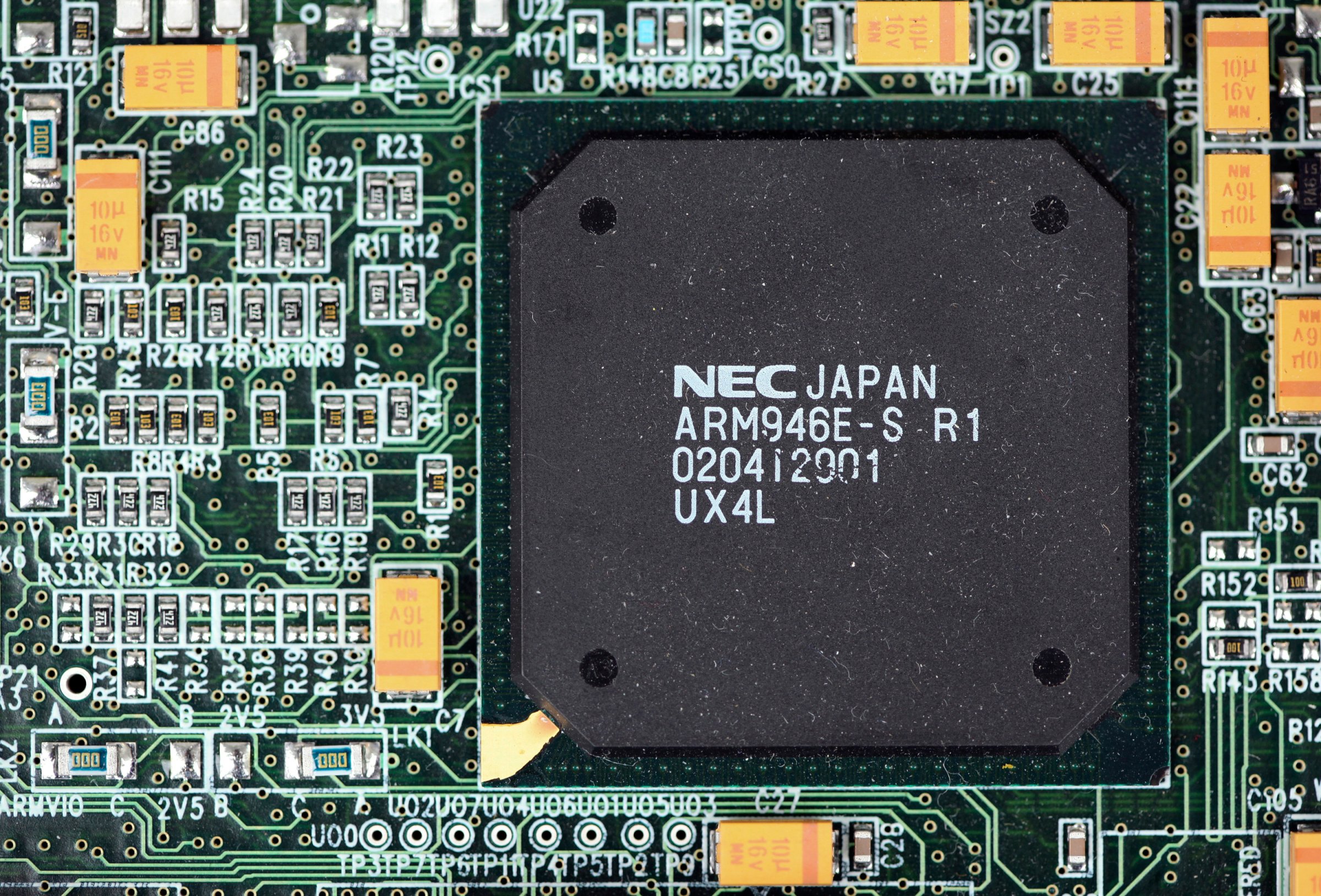
SoftBank’s impending takeover of ARM Holdings means the Japanese firm is buying the most important company in the world of mobile processors.
ARM’s processor designs power more than 95 percent of the smartphones out there (Intel has never been able to replicate its desktop success in this space). From the iPhone and Apple Watch down to the cheapest Nokia phone out there, you can be pretty sure that your mobile device has an ARM-based chip inside.
The 25-year-old British company has the crucial advantage of not having to make its own chips—it just designs the processor architecture and licenses it to companies such as Qualcomm, Samsung and Apple.
In fact, ARM’s genesis dates back to the collaboration between Apple and Acorn, the computer company whose Acorn RISC Machine (ARM) processor powered Apple’s Newton personal digital assistant in the early 1990s.
The SoftBank deal is worth around $32 billion, and the Japanese communications conglomerate is promising to make its new baby flourish like never before.
SoftBank said Monday that it would at least double ARM’s U.K. headcount and to grow its employee numbers outside the country over the next five years. The business model will stay the same, as will the company’s organizational structure and senior management.
ARM’s headquarters will remain in Cambridge, in the east of England. Much as Intel and Stanford University have been essential to Silicon Valley, ARM and the University of Cambridge have been central in the development of the smaller “Silicon Fen”—a cluster that also gave birth to big data outfit Autonomy (disastrously purchased by Hewlett-Packard) and Bluetooth chip firm CSR (now owned by Qualcomm).
Of course, ARM’s potential future does not just lie in mobile. Because the company’s architecture is designed to use as little power as possible (a must-have in phones), it is also well-placed for the nascent Internet of things—the new world of everyday devices that have processors and radios embedded in them to give them some smarts and connect them with the Internet.
While the Internet of things has a lot of buzz about it, it still has yet to reach the ubiquity enjoyed by smartphones. That said, smartphone growth is slowing as the market saturates, and companies such as ARM need to diversify.
In May, ARM said more than half of the 4.1 billion ARM-based chips that shipped in the first quarter of this year had been for non-mobile markets—though mobile did account for two-thirds of ARM’s royalties for the period.
SoftBank CEO Masayoshi Son was clear in his Monday statement about where he sees ARM’s value. “ARM will be an excellent strategic fit within the SoftBank group as we invest to capture the very significant opportunities provided by the Internet of things,” he said. “This is one of the most important acquisitions we have ever made.”
SoftBank said it would not only invest in more engineers for ARM, but also look for “complementary acquisitions” to maintain the firm’s “R&D edge.”
ARM has recently been no slouch on this front anyway. Last year alone it bought Internet-of-things security firms Sansa (which it is using as the basis for a new development hub in Israel) and Offspark, Bluetooth technology companies Wicentric and Sunrise (which will again aid its Internet-of-things efforts on the communications side), and virtual-prototyping outfit Carbon Design Systems.
The British company is developing its own operating system for the Internet of Things, called mbed. The idea here is to make it easier for companies entering the space to pick up an ARM-based chip and quickly set up a working connected device.
SoftBank, meanwhile, last week announced a joint venture with Internet-of-things technology and services company Aeris. The joint venture will push Aeris’s network and platform in Japan, India, Europe and the U.S., targeting markets such as the automotive industry.
It’s not hard to see how a big beast such as ARM will fit into such a strategy.
“This move by ARM is recognition of the limits of this current market and the need to invest to expand beyond PC and mobile into the multitude of consumer home, building, car and other platforms emerging in the Internet of things,” said Mark Skilton, a professor at Warwick Business School.
“This needs bigger pockets to take on completion to scale these markets…Telecoms companies have had an interesting challenge to position the vital network ‘glue’ to connect all these devices and services, but seek a bigger part of the market share through similar integration into the delivery device end.”
As some have noted, SoftBank’s timing on the ARM acquisition has been fortunate, thanks to the impact of the Brexit vote on the pound.
The British government, of course, is leaping on this spot of good post-Brexit news. “Just three weeks after the referendum decision, it shows that Britain has lost none of its allure to international investors,” said chancellor of the exchequer Philip Hammond.
Hammond also said the deal—the largest-ever investment from Asia in the U.K.—would “turn this great British company into a global phenomenon.”
It already is that, by any measure. Though if SoftBank plays its cards right, and if the Internet of things explodes as predicted, ARM could indeed become even more important than it already is.
This article originally appeared on Fortune.com
More Must-Reads from TIME
- Donald Trump Is TIME's 2024 Person of the Year
- Why We Chose Trump as Person of the Year
- Is Intermittent Fasting Good or Bad for You?
- The 100 Must-Read Books of 2024
- The 20 Best Christmas TV Episodes
- Column: If Optimism Feels Ridiculous Now, Try Hope
- The Future of Climate Action Is Trade Policy
- Merle Bombardieri Is Helping People Make the Baby Decision
Contact us at letters@time.com